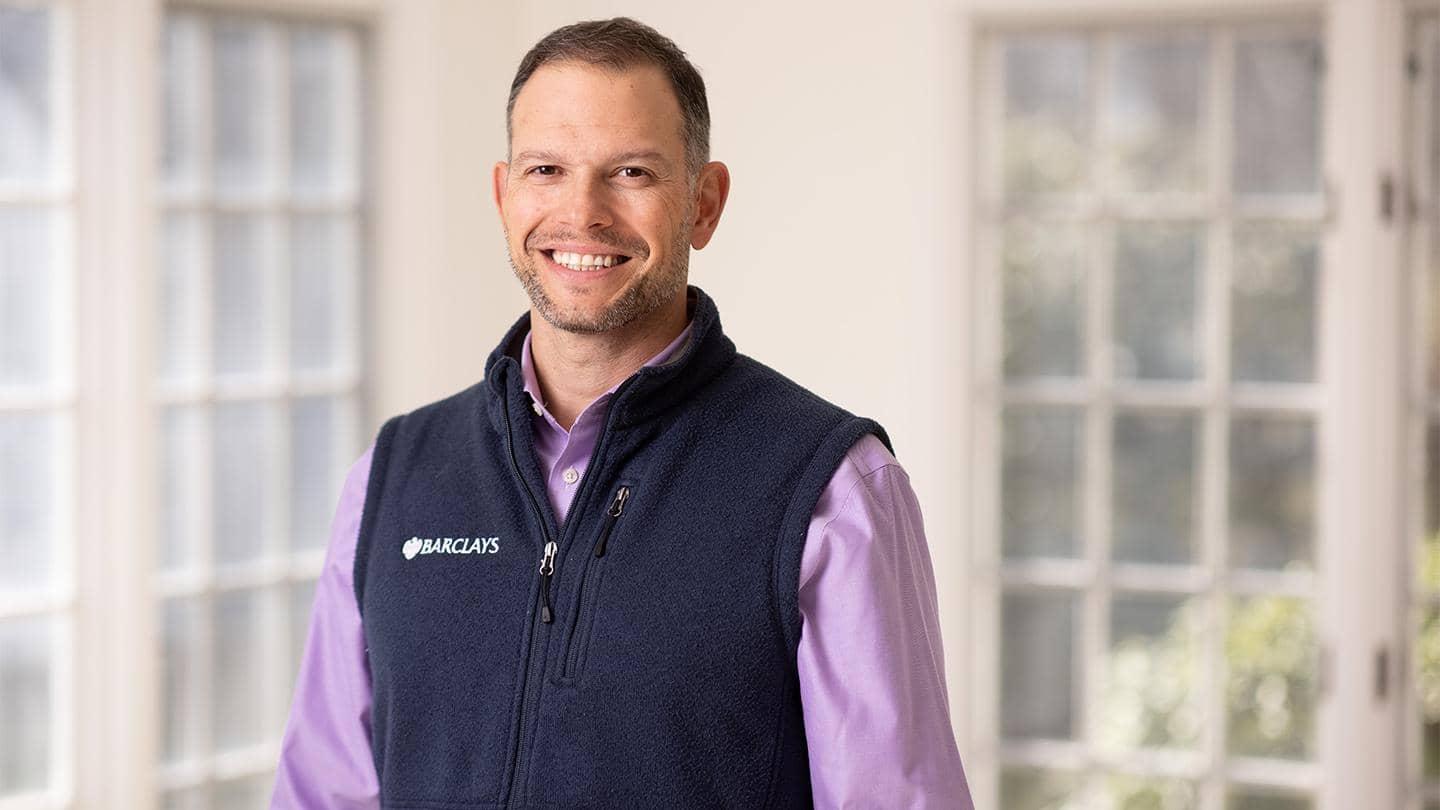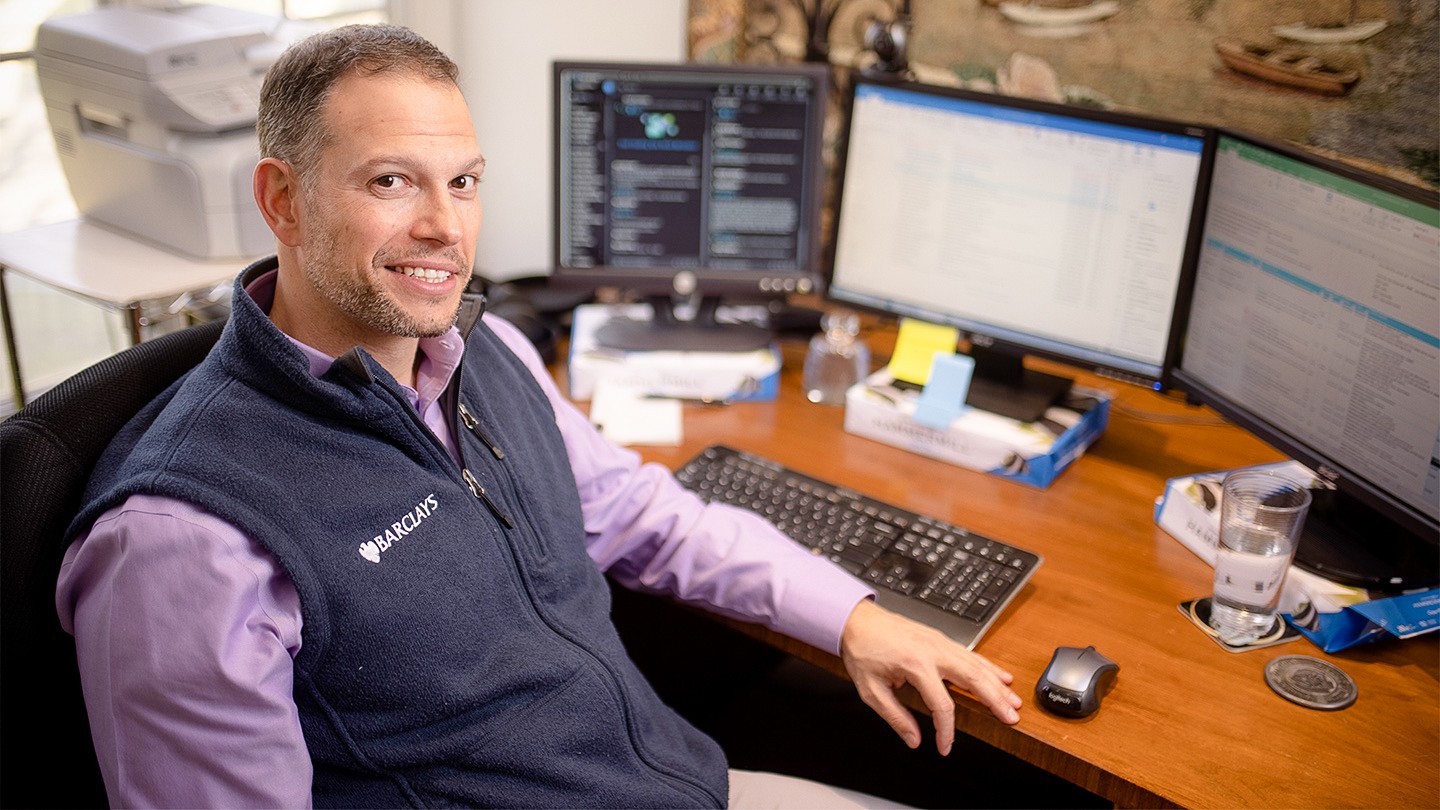
Culture
Building disability and mental health confidence
Joshua Levine heads up Barclays’ Reach network in New York, providing an open forum to support colleagues with disabilities, caring responsibilities or mental health conditions. On the International Day of Persons with Disabilities, Joshua tells us about the fulfilment gained from being involved with Reach, why it has changed colleagues’ perspectives – and how the network has adapted to the pandemic.
In his day job as Business Manager in Fixed Income Credit at Barclays Investment Bank in New York, Joshua Levine says he “wears many hats”. Away from his desk, he picks up another cap as lead of his local Reach network, one of several colleague-led disability and mental health support groups that Barclays offer worldwide.
“I think there are three things that made it compelling to join this network and get involved. One, there’s networking, with so many people from across the bank at all levels. Secondly, there are leadership opportunities,” he adds, describing the cross-industry groups he has become involved with because of Reach. “But thirdly, it’s fulfilment. Every day, you do your job and you walk away. What's great about these networks is that you give back to the community. It makes Barclays a more well-rounded firm where you’re just happier to be an employee.”
What's great about these networks is that you give back to the community. It makes Barclays a more well-rounded firm where you’re just happier to be an employee
Chair of Reach disability and mental health network, Barclays US

Joshua, who has a hearing impairment and wears hearing aids, first connected with Reach on joining Barclays in 2008. “In the beginning,” he says, “I had been to many disability awareness events but never identified as being someone with a disability. Over the last decade, I’ve learnt so much more about the plight of people with disabilities, especially the challenges they face with employment. It’s changed my perspective on life and on people and made me a better and more patient parent and friend.”
Much of this development has come through sharing stories in supportive environments, either in sessions led by guest speakers, or through colleague-led events and discussions. “It's given people some comfort that other people are there to support you,” Joshua says. “I think people have actually found connections many times during those conversations.”
Reach online
The Reach network has been particularly important during the pandemic, although Joshua says the change to working patterns has impacted different members in different ways: “A lot of that obviously depends on your situation at home.
“If you live alone and you're isolated, if you have a young family or an older family – all of this can impact how people are finding new ways of working. But I think from a disability perspective, working from home can potentially even the playing field for people with physical disabilities. You might have trouble commuting, and getting around the office could be pretty challenging.”
The network’s events have moved seamlessly online, and Reach’s pandemic focus has shifted slightly towards mental health (where a sub-group is led by Barclays’ Peter Toal) and guarding against the anxiety and isolation of the times. “But we haven’t stopped what we usually offer,” Joshua points out. This includes joint sessions with other Barclays networks, including LGBTQ+ group Spectrum and the Black Professionals Forum, and innovations like STEPtember “raising money in groups where teams were counting their steps: that was really good for physical health and also in connecting with people”.
Those connections run throughout the bank. “When you join a network, you might have a chance to take a leadership role,” says Joshua. He recalls a colleague organising an event on stuttering that brought him into contact with the bank’s CEO Jes Staley, who joined the meeting and shared his experiences of the condition.
“If you're going through something tough,” Joshua says, “and you don't feel like you have an outlet at home or somewhere else, then it's great when you come to work and find someone in your office, maybe someone you didn't know was going through something similar, who can help. That’s one of the goals of those discussions.”
“I know I feel comfortable”
Another goal is a broadening of perspectives, as with a joint session held with the Black Professionals Forum at a time when social justice is necessarily moving up the agenda. “Sharing their stories, it was eye opening, just hearing what others have to say really gives you perspective and changes your outlook.”
While Joshua recognises that sharing stories can also help develop greater understanding towards colleagues with disabilities, there’s a nuance where “a lot of people have been struggling their whole lives to be included and accepted and to blend in. Then, all of a sudden, we're telling them to raise a hand and say why they're different. That could be something that they don't necessarily think they need to do. They're just like everybody else. Why do they have to say they're different?
“But a huge message to get out is to be unafraid to talk if you need help. I think we have enough stories and enough evidence for people at this point to feel comfortable. I know I feel comfortable.”